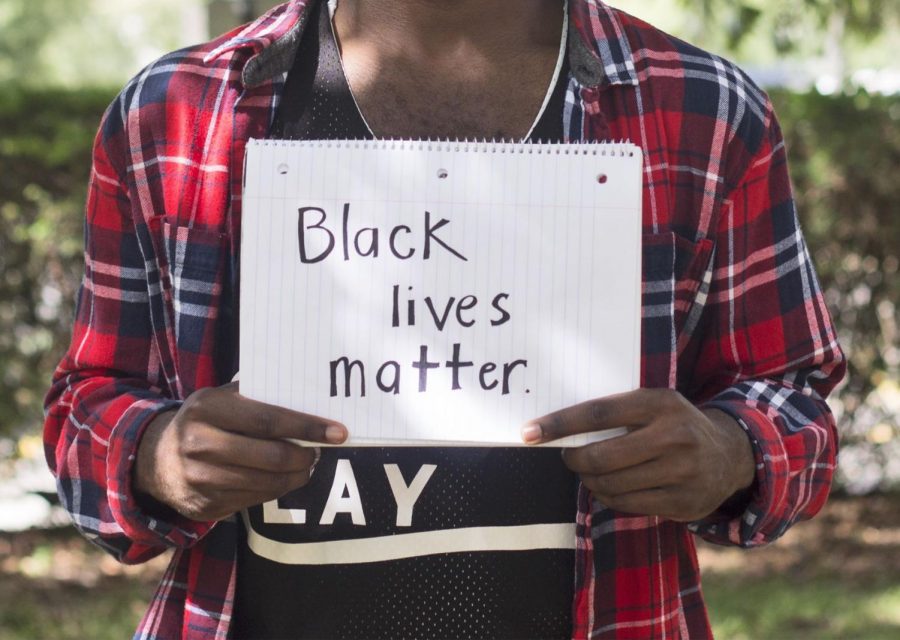More than a hashtag: Why ‘Black Lives Matter’ matters
Trayvon Martin. Michael Brown. Eric Garner. And that’s to name a few drops in an ocean.
In the wake of these tragic deaths and others, it’s a wonder why something as trivial as a hashtag like #BlackLivesMatter should matter.
Yet #BlackLivesMatter is more than a hashtag. It’s a call for justice and equality. It’s a call for all people to recognize institutional racism in this country and the marginalization of black lives in the recurring events of police brutality.
The racial equality movement has the same call that rang out with Rosa Park’s historic “no,” the same call that bellowed across the nation in Dr. Martin Luther King Jr.’s “I have a dream.”
However, dissenters have refused to even address the concern for safety by replying with the hashtag #AllLivesMatter. This response has received national attention, both positive and negative, and it’s a lot more inflammatory than it sounds at first.
The All Lives Matter hashtag poses the seemingly innocent question, “Do all lives matter?” Of course. The answer is so blatantly obvious that it begs the label of a rhetorical question, a question so painfully apparent that its hashtag should seemingly be supported without doubt.
However, the counter-movement fails to understand that no one is challenging whether all lives matter. Black Lives Matter activists’ hashtag is not a call to invalidate non-black lives; it’s a plea to validate black ones.
Black Lives Matter addresses the question, “Do black lives matter in this country?” With racial tensions on the rise, the answer is not so clear. And if black lives do matter, why does our society turn a blind eye to the countless black lives lost?
Consider this: Your house is on fire, smoke billowing out of the windows. When firefighters arrive on scene, you point them to your home, yelling for help, only for your neighbors to jump in front of you. The neighbors steal the attention of the firefighters, demanding that their houses need help too. One neighbor has no working plumbing, another has roof damage, and a final neighbor just needs a new paint job.
In no way is your request for help to put out the fire demeaning the quite-valid work other households need. However, your house is the one on fire at the present moment; yours is the one experiencing destruction. Like no one else’s home, yours is the one that needs immediate attention.
With this metaphor in mind, the All Lives Matter hashtag acts as if specifying a group in a movement’s name is to demean others. It acts as if the hashtag reads only black lives matter when in actuality, the Black Lives Matter movement means that black lives matter too.
However, there is a bigger issue here. While innocent-sounding at first, All Lives Matter is at its core an age-old silencing tactic, a distraction from the real issue and is absolutely disrespectful to the very real concern for safety that black people feel in this country.
So just like the Black Lives Matter hashtag means something greater than a trend on social media, the All Lives Matter hashtag’s meaning is more than a harmless, color-blind statement.
#AllLivesMatter is a refusal to acknowledge the existence of racism in this country — a refusal so strong that it decimates the fears of a people. It is the slogan of a nation that fails to recognize the suffering of a race.
It is the slogan of a nation that disowns the suffering of its children, children like Trayvon Martin, Michael Brown and Eric Garner.

I am Lilli Hime—English Writing and Rhetoric major and freelance writer at Hilltop Views. This is my senior year at St. Edward's University.
My role...







